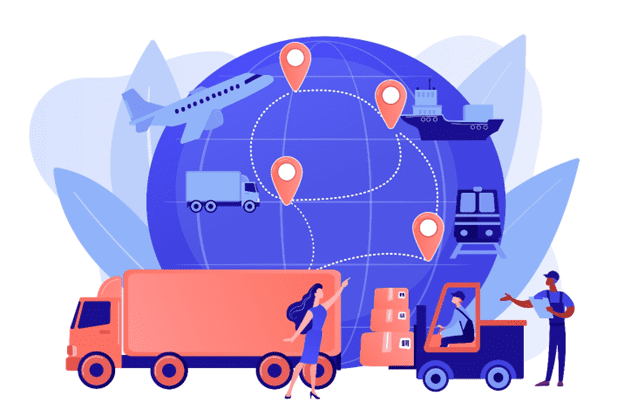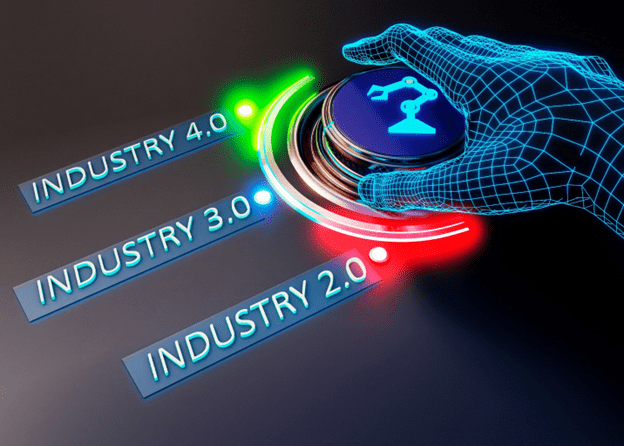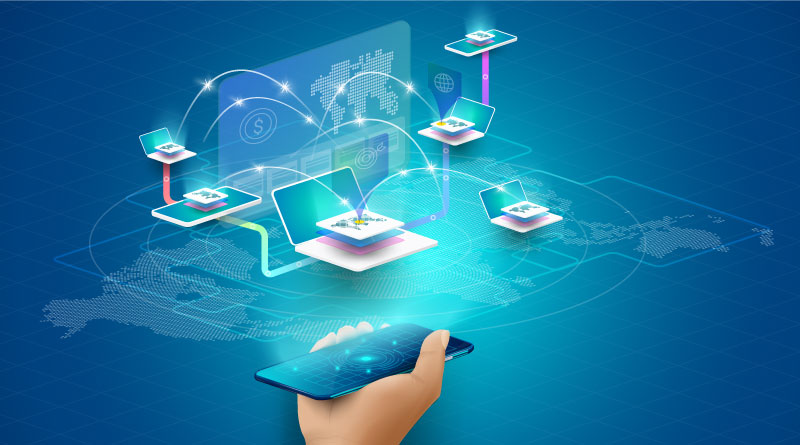Many traditional, labor-intensive industries are finding it difficult to accept the rapid digitalization of the world and the professional sphere, but it is a reality we must accept. Digital transformation is typically a lengthy and challenging process.
It necessitates a clear strategic vision, open-minded employees willing to change, and a sufficient number of digitally savvy employees in the company. Specific industries, typically those with many physical assets, such as manufacturing, find it more challenging to make the digital transition than others.
A Closer Insight
All industries experienced digital transformation due to the onset of the pandemic, which caused changes in all aspects of life. The traditionally labor-intensive sector, in particular, felt the force of digitalization.
The term “digital disruption” has reshaped the business world in various industries. It would not be easy to find a company today that has not adapted in some way. However, some industries have seen more change than others have.
Some industries, such as technology and media, are prominent innovation hotspots. However, more traditional sectors must modify their current practices to keep up with demand, meet new expectations, and retain customers.
As these older industries embrace digital solutions, they solve long-standing issues and expand.
Related: Importance Of Business Digital Transformation: Unleash The Power!
Industries Ready For Digital Transformation
The Logistics Industry

If the COVID-19 pandemic taught us anything, supply chains are fragile, inflexible, and opaque. Fortunately, some logistics companies have recently embraced digital disruption, resolving these issues. Following all of the disturbances in 2020, more will follow, resulting in industry-wide transformation.
Speed and timing are critical to gaining a competitive advantage in transportation and logistics—other examples of where they are true game changers.
Cloud-Based Logistics
One of the most significant trends is the use of cloud-based systems in logistics. Managing a supply chain can be inherently complex, necessitating the benefit of all of your helpful tools. Cloud-based technologies enable real-time vehicle tracking, logistics space planning, and online ticketing management.
Smart Vehicles
We are close to the day we will witness fully automated transportation processes with self-driving vehicles. Introducing self-driving and autonomous trucks and vehicles into the supply chain to transport goods would result in significant cost savings. Sensors & IoT Devices Improve the Logistics Process
IoT-powered applications enable you to track a product from the warehouse to the customer, giving managers confidence that all supply chain stages are executed successfully. In addition, IoT logistics applications provide real-time data at every step of the supply chain process, allowing managers to identify inefficiencies and waste.
Related: Why Is Digital Transformation Important For The SMEs?
The Education Industry
Over the years, the sector has lagged behind its counterparts; however, with the onsite pandemic, things have gradually improved. In addition, schools closing worldwide gave rise to digital tools and platforms by drastically changing education.
AI Chatbots Creating Educational Content
Chatbots powered by AI can analyze student responses and deliver learning content based on their preferences. For example, based on the student’s comprehension of the lecture, the bot can tailor the following section to provide an entirely new experience.
Apps & Online Platforms For Learning
The education sector has changed as students join digital learning platforms, and how platforms transform traditional industries is something to keep an eye on. For example, launching learning apps to access notes, curriculum, and administer tests creates an interactive learning platform.
AR/VR For Immersive Learning Experience
The next level of evolution in the learning system is augmented and virtual reality. With VR, you can create a virtual tour to immerse yourself in the concepts. In addition, beautifully designed augmented reality apps contribute to an entirely new learning experience.
Related: 5 Effective Ways To Improve Digital Adoption In Your Small Business
The Manufacturing Industry

By 2026, the market for digital transformation in manufacturing will reach USD 767.82 billion, growing at a CAGR of 19.48% between 2021 and 2026.
With the introduction of Industry 4.0 in the manufacturing industry, various plants are embracing digital technologies to improve, automate, and modernize the entire process.
Reduced Cost due to Process Automations
In the manufacturing industry, digital transformation and automation reduce processing costs while increasing cost efficiency. Previously, manufacturing companies focused less on a product’s production cost, which resulted in high-end product costs.
However, the growing integration of digital transformation, which has resulted in automation, has reduced unnecessary expenses. For example, digital manufacturing can shorten development cycles and increase the rate of product innovation, lowering manufacturing costs.
Quality Improvement Due To IoT
Improving a product through low-cost manufacturing allows for a faster product launch and higher revenue generation. In addition, implementing IoT in the manufacturing industry aids in detecting errors at an early stage, reducing errors and mistakes, and reducing the number of products returned to the company.
Process Execution
One of the significant advantages of incorporating digital transformation, such as robotics and IoT, is that the robots can work 24 hours a day, seven days a week, without causing any glitches or errors. As a result, it is likely to boost market growth during the forecast period. Furthermore, on-demand manufacturing is predicted to grow, and Industry 4.0 is expected to aid in making more efficient decisions and improve supply chain operations.
The fourth industrial revolution encompasses various technologies across the value chain and is the center of information and automation. However, the manufacturing industry’s rapid adoption of automation and digital transformation necessitates using highly skilled laborers to handle Big Data and operate the necessary machinery.
The Construction Industry
Construction is one of the last things that comes to mind when people think of digital industries. For years, the industry has resisted technological disruption, but that is changing with the introduction of new digital tools. BIM (building information modeling) is at the forefront of this transformation, with 73% of construction firms utilizing it.
Use of Applications and IoT Devises
BIM software allows construction professionals to create, edit, and share digital building models and renderings. It’s a more adaptable, data-driven alternative to blueprints and physical models reshaping the industry. As a result, construction companies have reduced waste, completed projects faster, and increased profits by embracing these tools.
Teams are using internet of things (IoT) sensors to monitor worker health and improve vehicle maintenance and drones to survey land and 3D print parts. Many of these innovations
The Retail Industry
Few industries have undergone as significant a digital transformation as retail. Ecommerce, which has come to define modern retail, is the most visible example of this shift. Even in 2022, when overall retail sales fell by 3%, e-commerce increased by 27.6%, generating $4.28 trillion.
Moving to online sales is one of many ways retail has gone digital. Retailers are now using their websites to solidify their brands. In addition, companies that have been in business for over 30 years use their website to provide a strong mission statement and attract customers.
Even traditional retail outlets have begun to benefit from digital disruption. For example, some stores are now using technologies such as IoT sensors and data analytics to track how customers behave in their stores. This data then allows them to adjust to consumer trends and maximize sales.
Related: SaaS Vs. Cloud Solutions: Essential Parts Of Digital Transformation
The Finance Sector

When digital-native financial technology (FinTech) firms emerged, they threatened traditional banks’ dominance in the finance industry. In response, banks have adopted similar technologies and techniques to remain competitive. As a result, these digital services are now industry standard.
Managing finances used to entail a trip to the bank, which frequently involved paperwork and lengthy wait times. With dedicated banking apps, people can now manage their accounts from anywhere. In addition, peer-to-peer lending services have helped to democratize finance and provide funding to the unbanked. Overall, digital technology has improved financial accessibility, efficiency, and security.
The Digital Revolution Will Not Wait!
Traditional industries can turn the crisis around and use it to reconsider their digital priorities and how to best use technology to innovate. There are innovative technologies available that traditional industries can use to improve safety and productivity. However, these industries must have a well-thought-out transformation strategy. If they do not, their transformations will most likely be short-lived.
Transformation entails determining which processes will benefit the most from digitization.
As time passes, heavy industries will have to ramp up production to catch up on large numbers of orders that were frozen during the lockdown while also satisfying new business. Digitized supply chains and manufacturing ecosystems will be critical in establishing agile operations to meet these orders on time.
Related: Digital Transformation: Know How It Can Change The Direction Of Your Company
Summing up
Any industry, whether traditional or old, has been impacted by digital technologies. In some cases, digital technologies and services have brought significant improvements to all sectors. As these resources grow, more use cases will emerge, leading to even more innovation.
There is no denying the fact that digital technologies are impacting the way projects are perceived and implemented across traditional industries. Digital transformation is an essential element for all industries. MilesWeb acts as your digital transformation partner by establishing your online presence, improving the customer base, and creating your brand identity.















